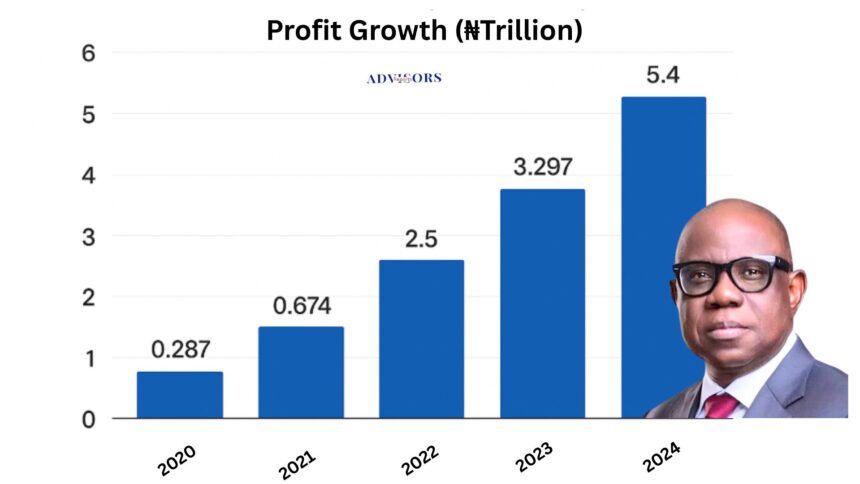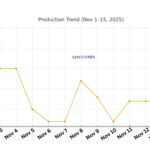… as Ojulari sets ambitious $60bn investment target to boost oil, gas output by 2030
Oredola Adeola
The Nigerian National Petroleum Company Limited (NNPCL) has declared a net profit of of ₦5.4 trillion supported by ₦45.1 trillion in revenue at the close of the financial year, which ended in December 2024, represented an increase of over 2.103 trillion or 63.78 percent compared to the 2023 profit.
Bashir Bayo Ojulari, Group Chief Executive Officer, made this known in a press statement after a company concluded its Annual General Meeting, in Abuja on Monday.
Advisors Reports’ check showed that NNPC Limited’s latest results extend a remarkable profitability streak that began in 2020, when the Company recorded its first-ever profit of ₦287 billion, rising to ₦674 billion in 2021 and ₦2.5 trillion in 2022.
Building on this trajectory, NNPC sustained financial strength and deepening operational efficiency across its portfolio with a PAT of ₦3.297 trillion in 2023 and a record ₦5.4 trillion in 2024.
According to him, the NNPC Limited’s results demonstrate strengthened financial resilience and enhanced operational efficiency as revenue of ₦45.1 Trillion represent a 88% year-on-year growth
and earnings per share of ₦27.07 , representing a 64% year-on-year growth.
He stated that the earnings highlight the positive momentum of our ongoing transformation and the unwavering commitment of our workforce.
Engr. Ojulari, further disclosed that the results offered a solid foundation for the ambitious growth ahead, in line with President Bola Tinubu’s mandate, and reaffirm the company’s commitment to delivering value to Nigerians.
He said, “This outcome was propelled by several critical drivers, enhanced operational efficiency across our assets, the positive impact of downstream market reforms, and our unwavering commitment to cost discipline.
The GCEO explained that financially, NNPC has never been stronger or better positioned for
tomorrow.
Strategically, this financial capacity powers our ambitious national initiatives. We are vigorously advancing key gas infrastructure projects such as the Ajaokuta-Kaduna-Kano pipeline project, also known as AKK, and the ObiafuObrikom-Oben, also known as OB3 pipelines.
These projects according to him will unlock a gas-powered economy, reviewing technical and
commercial viability of our refineries to strengthen domestic energy security, and pursuing a $60 billion investment pipeline to expand oil and gas output.
“Our goal remains to raise crude oil production to 3 million barrels per day by 2030 and grow gas production to 12 billion cubic feet daily,” he said.
Ojulari has therefore made an ambitious target of mobilising $60 billion in investments across the upstream, midstream, and downstream sectors by 2030.
This strategic roadmap, according to him, is expected to drive sustained growth with the plan to prioritise increased oil and gas production.




